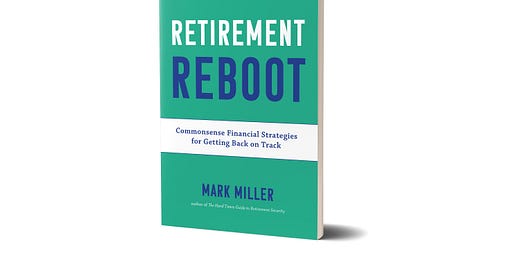How to protect your retirement from inflation
The Social Security cost of living adjustment for 2024, expected to be announced next Thursday, is forecast to be 3.2 percent, far below this year’s 8.7 percent bump. The smaller increase would reflect the cooling of consumer prices, but inflation is an ever-present risk that should be a consideration in your retirement plan.
Although Social Security is adjusted annually for inflation, it will cover only part of your spending in retirement. Over a retirement several decades long, inflation can erode the buying power of your other assets, forcing a quicker spend-down and threatening your standard of living.
The risk you’ll face from inflation depends on your circumstances. Social Security replaces a higher share of pre-retirement income for middle- and lower-income retirees than it does for affluent people, and that means a greater share of their retirement income will be protected by COLAs. And benefits cover a much larger share of living expenses in low-cost parts of the country.
Your exposure to major expenses also can make a difference.
Older households spend more on health care than younger people do, and they spend slightly less on food and transportation.
Portfolio strategies are available that can help mitigate inflation risk. The timing of your Social Security claim also matters — and you may want to consider other income products, such as annuities and inflation-adjusted bonds.
My latest “Retiring” column for the New York Times examines strategies for protecting your retirement plan from inflation.
“Aging in place” - what does the phrase really mean?
Ask people where they hope to live as they get older, and most say they want to age in place in their own homes.
That instinct has only increased over the past few years, amid the horrific death toll from the coronavirus pandemic on older people living in nursing homes or other institutional care settings.
But the phrase “age in place” can mean different things to different people.
My latest column for Morningstar considers how to evaluate your current living situation with aging in mind.
Listening to Retirement Reboot
Retirement Reboot - the audiobook - is available now for downloading at Amazon and other audio platforms.
If you missed it - I produced a podcast series earlier this year focused on key themes of my latest book, featuring conversations with expert guests discussing Social Security, Medicare, saving for retirement and more:
Introduction: An overview of the book featuring a conversation with Chris Farrell, senior economics contributor for Marketplace, the public radio program. Chris wrote the foreward to Retirement Reboot.
Let’s Make a Plan. Far too many people don’t take the time to make an actual financial plan for retirement – and that’s a real misstep. If you don’t have a plan, it’s impossible to know whether you are on track to meet your goals. My guests are Steve Chen, the founder of New Retirement, and Steve Vernon, the well-known retirement educator and author.
Optimizing Social Security. For most of us, Social Security will be the most important retirement benefit – full stop. Decisions about when to claim can make a big difference in your lifetime income. For this episode, I invited two of the most knowledgeable people I know on the topic of Social Security claiming. Mary Beth Franklin is a contributing editor at Investment News magazine, specializing in Social Security, Medicare and Retirement income. Bill Reichenstein is a professor of investment management at Baylor University, a co-founder of Social Security Solutions – a company that has developed a terrific set of online software tools that help individuals and financial professionals sort through claiming decisions. He is the co-author of a book titled Social Security Strategies: How to Optimize Retirement Benefits.
Navigating Medicare. Along with Social Security, there’s nothing that will have a more important impact on your retirement security than making smart choices about navigating Medicare. Joining me are two top Medicare experts: Tricia Neuman, executive director of the Medicare program at the Kaiser Family Foundation, and Fred Riccardi, president of the Medicare Rights Center.
Building Savings. Starting as early as possible is the name of the game when it comes to saving for retirement. But if you’re getting close to retirement and haven’t been able to save much, don’t despair: it is still possible to build significant savings late in the game. Joining me to discuss catch-up strategies and smart, simple approaches to saving for retirement is Christine Benz, director of personal finance at Morningstar.
Toward a New Social Insurance Era. When I hear from readers who are worried about the future of Social Security or Medicare, their questions and comments often take a passive tone—“what will happen to me if they cut my benefits,” or “what happens if they allow the Social Security trust funds to become insolvent.” But Retirement Reboot is a book about action steps you can take to improve your personal retirement outlook. Social Security and Medicare have both played critical roles in improving the lives of millions of Americans, but as has happened throughout their history, these programs need to change, and do more. Or, better put: We need to advocate for changes in these programs so that they can serve us better. Joining me are Nancy Altman of Social Security Works and Judith Stein, executive director and founder of the Center for Medicare Advocacy.
The Retirement Revised podcast is available from Apple, Spotify and other podcasting platforms.
What I’m reading
Why more seniors are living in poverty . . . The baffling allure of bad investment advice . . . How SHIPs can help combat Medicare misinformation . . . Hospitals dropping Medicare Advantage “left and right . . .”



